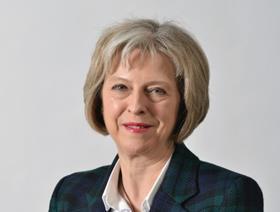
The NFU Council has announced it still has “legitimate and important” concerns after the Prime Minister ruled out staying in the European Single Market.
In an eagerly awaited speech outlining the government’s priorities for negotiations with the EU, Theresa May said the UK “cannot possibly” remain in the trading group, as it would mean “not leaving the EU at all.”
This prompted the NFU to call for “urgent talks with government as to how a post-Brexit Britain could work for Britain’s food production and for detailed commitments on a suitable transition period.”
May said that she intends to pursue a (tariff-free) free trade agreement with the EU – a deal she plans to negotiate during the two-year period after Article 50 is triggered in March – but the NFU expressed concern that “these kind of deals normally take years to conclude and do not cover all products”.
The shape that the deal takes is hugely significant to the farming industry given that 72 per cent of the UK’s agricultural exports go to the EU.
If a free trade agreement cannot be reached quickly and comprehensively, the NFU says it is important that trading arrangements are phased out gradually.
This is particularly important “given that farming is a long term industry where farmers are making decisions now without knowing what a future trading environment will look like,” the NFU wrote in its response to May’s speech.
Overall the Prime Minister struck a tough and, at times, threatening tone, warning that any attempt by the EU to impose a punitive deal on the UK would be a “calamitous act of self-harm for the countries of Europe”.
But on the issue of free movement May herself was unwilling to compromise, suggesting that freedom of movement would be ended. “I know that you cannot control immigration overall when there is free movement to Britain from Europe,” she said.
This will not be welcome news to the farming sector, which depends heavily on seasonal labour from Eastern Europe, but the NFU was pleased to hear May’s acknowledgement that access to a reliable overseas workforce is vital to many British industries.
“We look forward to that acknowledgement being turned into a commitment that is then acted on,” the body wrote in its statement.
Another major announcement made by the Prime Minister in her speech was that Parliament would get to vote on the final exit deal agreed between the UK and the EU.
Her commitment to a vote for MPs and peers follows demands from Labour, the Lib Dems and the parliament’s committee on Brexit for Parliament to have a voice.
But according to the Guardian, Downing Street sources stressed that Parliament would not be able to stop the UK leaving the EU. This indicates that if Parliament were to oppose the Brexit deal, Britain may have to pay the higher tariffs imposed by World Trade Organisation rules.
Other announcements made by the Prime Minister in her speech included:
- Keeping the common travel area between the UK and the Republic of Ireland
- A customs agreement with the EU
- Establishing new trade agreements with non-EU countries
- Continued sharing of intelligence and policing information



